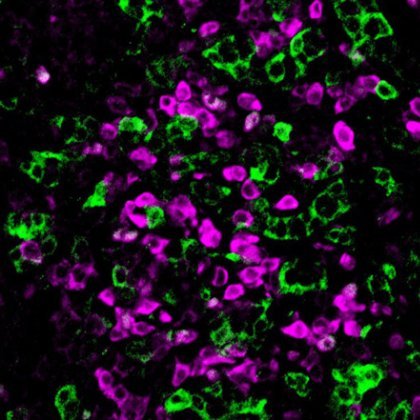
University of Queensland scientists have brought a retired sex gene in mammals back to life, proving it can still switch on male development in mice despite not having done so for millions of years.
The gene Dmrt1 is no longer used by mammals to determine sex but still plays a key role in determining sex in many vertebrates, including frogs, fish and birds.
UQ Institute for Molecular Bioscience researcher Professor Peter Koopman said this work provided valuable insights into the evolution of the genes responsible for determining sex in humans and animals.
“Dmrt1 is an ancient genetic relic thought to have lost its function in mammalian sex determination,” Professor Koopman said.
“Today the sex of modern mammals is determined by the newly evolved gene on the Y chromosome, called Sry.
“When genes are replaced in their role, like Dmrt1 has been by Sry, we assume it’s because the original gene either lost its function or was no longer expressed at the right time and place.
“When this happens, typically our body stops maintaining the gene.
“Eventually, the ‘retired’ gene may lose its original function while possibly acquiring new functions.
“In theory, this would make Dmrt1 a bit like an old, unmaintained lawn mower sitting in the shed, collecting dust.
“To our surprise, however, when we pulled Dmrt1 out of the shed we found that it started first time and is fully functional – it’s remarkable.”
Dr Liang Zhao said that the team was able to achieve complete female-to-male sex reversal in mice by overexpressing the Dmrt1 gene.
“There’s only a handful of genes known to be able to determine sex in mammals, and now we can add Dmrt1 to this important group,” Dr Zhao said.
“This also shows us that in evolution, when new genes take over from old genes, old genes may retire but can still perform their roles when made available at the right time and place.”
The research team hopes this new knowledge could help to develop better ways of managing sex ratios in agriculture, pest management, and conservation efforts for endangered species.
The research, published in the scientific journal Development, was funded by the Australian Research Council and the National Health and Medical Research Council.
Media: IMB Communications Manager Gemma Ward, +61 7 3346 2134, +61 439 651 107, g.ward1@uq.edu.au.
.jpg)










